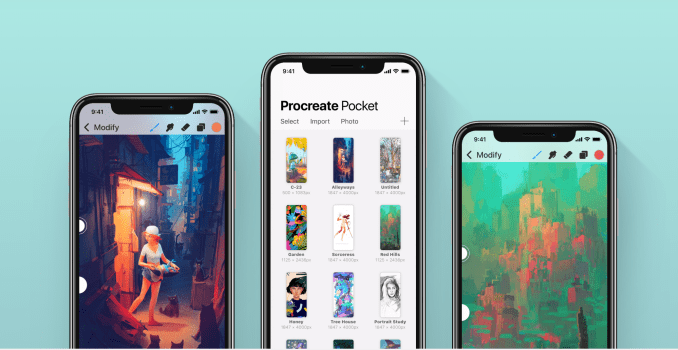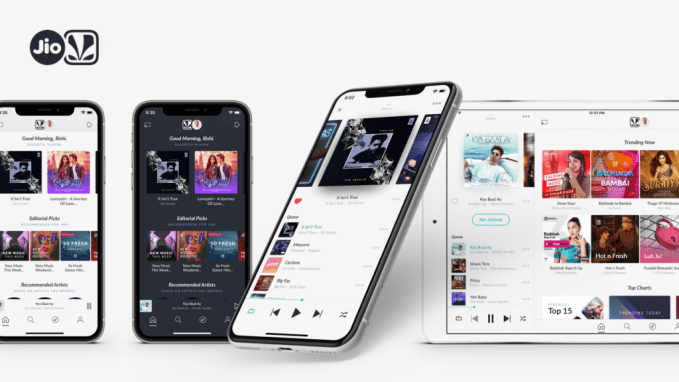Apple today announced its Best of 2018 selections – its annual, editorial list of what it considers the best content across its App Store and iTunes, along with its top charts of the most downloaded apps and games fo the year. As in other years, Apple selected a “best” app and game for each platform, including iPhone, iPad, Apple TV and Mac. It also rounded-up several favorite Apple Watch apps, but didn’t award a winner.
The best app of 2018 on iPhone was the iPhone version of the popular Procreate drawing app for iPad, Procreate Pocket.

Meanwhile, the top iPad app was Froggipedia, an AR app that lets you virtually dissect a frog so you don’t have to actually dissect a frog.
Both apps showcase technologies Apple aims to promote. In Procreate Pocket’s case, it’s the iPhone companion to an Apple Pencil-powered app on iPad. On the iPhone, it instead uses 3D Touch support for painting with your finger. Froggipedia turns an Apple Pencil into the scalpel to dissect a virtual frog.

On Mac, the top app was image editor Pixelmator Pro, and top Apple TV app was the big-screened version of workout app Sweat, whose creator Kayla Itsines also showed up at WWDC this year to lead a special session.
The top games this year were: Donut County (iPhone), Gorogoa (iPad), The Gardens Between (Mac) and Alto’s Odyssey (Apple TV) – the latter which also won an Apple Design Award earlier this year.
Showcasing their somewhat secondary status, Apple Watch apps didn’t get a “best of” pick for app and game, but a small group got a shoutout from Apple as being “favorites.”
This includes: WaterMinder, Lifesum, 10% Happier, Carrot Weather, FunGolf GPS, Swing Tennis Tracker, Slopes, App in the Air, Overcast, and Just Press Record.
While its “Best of” selections were editorially chosen, Apple also unveiled its year-end “Top Charts” across iPhone and iPad, which were separated by both apps and games (free and paid).
These are the most downloaded app of 2018. The lists still show Facebook, YouTube, Google, and other entertainment apps dominating the top free charts.
Top Free iPhone Apps – Chart
- YouTube: Watch, Listen, Stream
- Instagram
- Snapchat
- Messenger
- Facebook
- Bitmoji
- Netflix
- Google Maps – Transit & Food
- Gmail – Email by Google
- Spotify Music
- Amazon – Shopping made easy
- Uber
- WhatsApp Messenger
- Pandora – Streaming Music
- Wish – Shopping Made Fun
- TikTok – Real Short Videos
- Cash App
- Google Photos
- Google Chrome
- Twitter
Top Paid iPhone Apps – Chart
- Facetune
- kirakira+
- Dark Sky Weather
- HotSchedules
- PlantSnap Plant Identification
- AutoSleep Tracker for Watch
- Sky Guide
- 1 Second Everyday: Video Diary
- The Wonder Weeks
- Afterlight 2
- My Talking Pet Pro
- Glitché
- Scanner Pro
- TouchRetouch
- 7 Minute Workout Challenge
- Forest – Stay focused
- Full Fitness : Exercise Workout Trainer
- Word Swag – Cool Fonts
- SkyView® – Explore the Universe
- HeartWatch. Heart & Activity
Top Free iPhone Games – Chart
- Fortnite
- Helix Jump
- Rise Up
- PUBG MOBILE
- Hole.io
- Love Balls
- Snake VS Block
- Rules of Survival
- ROBLOX
- Dune!
- Subway Surfers
- Episode – Choose Your Story
- Word Link – Word Puzzle Game
- Toon Blast
- Color Road!
- HQ Trivia
- Twisty Road!
- 8 Ball Pool

- Kick the Buddy
- Sniper 3D Assassin: Gun Games
Top Paid iPhone Games – Chart
- Heads Up!
- Minecraft
- Plague Inc.
- Bloons TD 6
- Pocket Build
- Bloons TD 5
- Geometry Dash
- The Game of Life
- Papa’s Freezeria To Go!
- Grand Theft Auto: San Andreas
- Trivia Crack (No Ads)
- Getting Over It
- Monument Valley 2
- Alto’s Odyssey
- True Skate
- The Room: Old Sins
- Terraria
- Exploding Kittens®
- Five Nights at Freddy’s
- The Escapists: Prison Escape
Top Free iPad Apps – Chart
- YouTube: Watch, Listen, Stream
- Netflix
- Messenger
- Facebook
- Amazon Prime Video
- Google Chrome
- Gmail – Email by Google
- YouTube Kids
- The Calculator
- Amazon – Shopping made easy
- Spotify Music
- Hulu: Watch TV Shows & Movies
- Google Docs: Sync, Edit, Share
- Google Drive
- Google Maps – Transit & Food
- Microsoft Word
- Pandora – Streaming Music
- Amazon Kindle
- Colorfy: Coloring Art Games
- Google
Top Paid iPad Apps – Chart
- Procreate
- Notability
- GoodNotes 4
- Toca Life: Pets
- Duet Display
- Toca Life: After School
- XtraMath
- Toca Hair Salon 3
- MyScript Nebo
- Toca Kitchen 2
- PDF Expert by Readdle
- Toca Life: Hospital
- Affinity Photo
- Toca Life: Office
- GoodReader
- Toca Lab: Elements
- Notes Plus
- Human Anatomy Atlas 2019
- Toca Life: City
- AnyFont
Top Free iPad Games – Chart
- Fortnite
- ROBLOX
- Kick the Buddy
- Love Balls
- Helix Jump
- Color by Number Coloring Game!
- Bowmasters – Multiplayer Game
- Hole.io
- Rise Up
- Rules of Survival
- Subway Surfers
- Rolling Sky
- PUBG MOBILE
- Toon Blast
- Snake VS Block
- Granny
- Piano Tiles 2

- slither.io
- Run Sausage Run!
- Pixel Art – Color by Number
Top Paid iPad Games – Chart
- Minecraft
- Geometry Dash
- The Game of Life
- The Room: Old Sins
- Heads Up!
- Bloons TD 6
- Goat Simulator
- Five Nights at Freddy’s
- LEGO® Jurassic World

- Terraria
- The Escapists: Prison Escape
- Bloons TD 5 HD
- Monument Valley 2
- Plague Inc.
- Five Nights at Freddy’s: Sister Location
- Goat Simulator PAYDAY
- Five Nights at Freddy’s 2
- Teeny Titans – Teen Titans Go!
- Teen Titans Go! Figure
- Scribblenauts Unlimited
Apple also rounded up its best stories
In addition to the best content across categories, Apple this year also highlighted the most-read stories from the “Today” section on the App Store.
The revamped and more editorially-driven App Store launched over a year ago in September 2017, making this year the first full year of its existence.
The store is now not just a marketplace and search engine for apps, but also a place to read about the developers who create apps, their businesses, and learn other tips and tricks.
According to Apple, the top ten most-read stories included several on popular games, and a guide for parents on Snapchat, among others.
The full list included:
Apple also picked a few editorial favorites of its own, including:
Music, books and more
The company also unveiled its editorial and most-downloaded lists for podcasts, audiobooks, books, TV shows and music.
Some highlights of those selections included Artist of the year: Drake; Breakout Artist of the Year: Juice WRLD; Song of the Year: I Like It – Cardi B featuring Bad Bunny & J. Balvin; Album of the Year: Golden Hour – Kacey Musgraves; Most Downloaded Podcast: The Daily; Best Book of the year: American Marriage; and Audiobook of the year: American Marriage.
Apple isn’t the only one with a year-end “Best of” list out now. Google Play also this week unveiled its own “Best of 2018” winners. Its list included the best app, Drops: Learn 31 new languages, and best game, PUBG Mobile. It introduced a “fan favorites” category as well, where users got to vote on their own favorite apps and games. Those winners included PUBG again, but for best app, they chose YouTube TV.

from Apple – TechCrunch https://ift.tt/2QAFBEa



